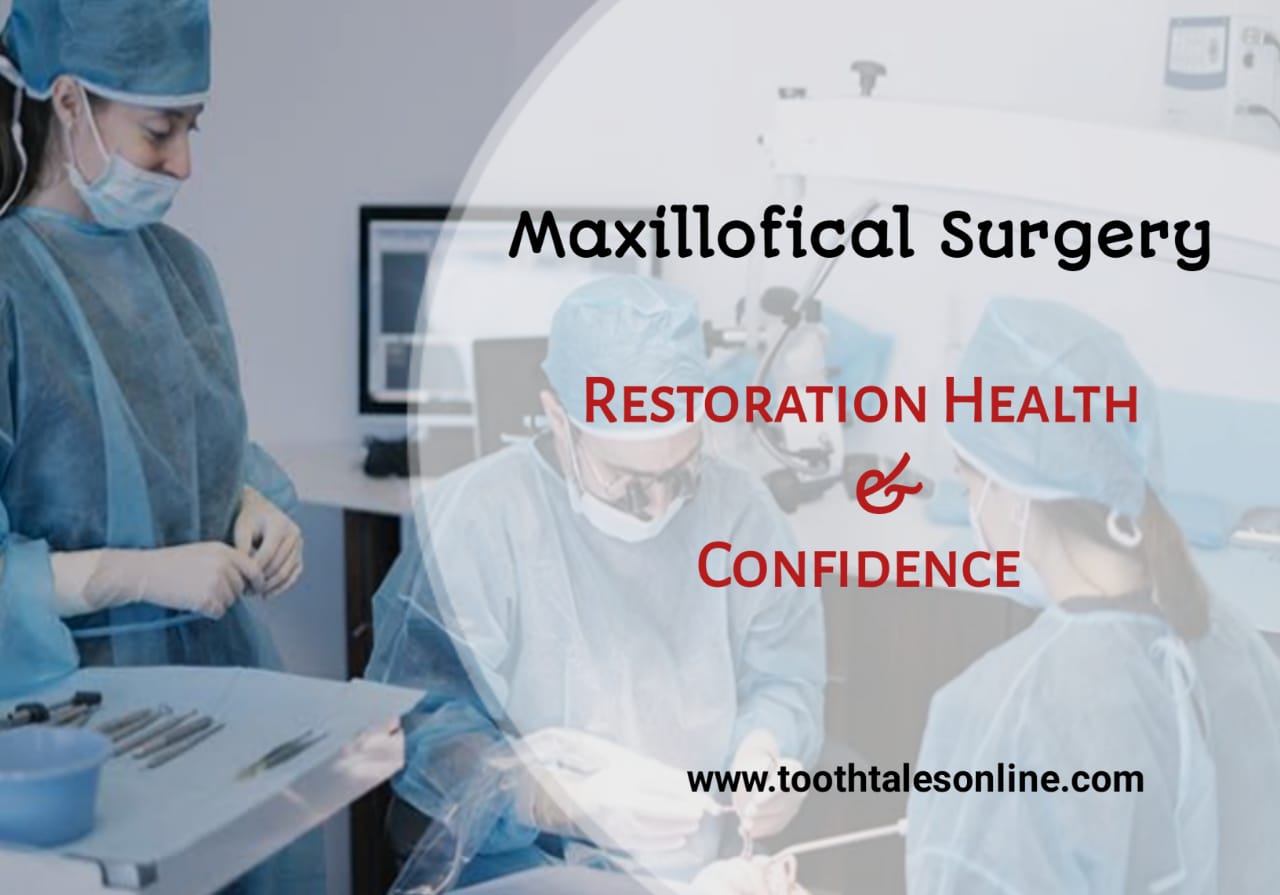What is Maxillofacial Surgery?
Maxillofacial surgery is a specialized type of surgery that focuses on diagnosing and treating problems involving the face, jaw, mouth, and neck. It is often used to address issues such as birth defects, injuries, and various medical conditions affecting these areas. This type of surgery plays a crucial role in improving both the functionality and appearance of these facial structures.
Common Reasons for Maxillofacial Surgery:
There are several reasons why someone might need maxillofacial surgery, including:
1.Corrective Jaw Surgery:
Some individuals are born with misaligned jaws, while others develop issues due to injury or other causes. Maxillofacial surgeons perform corrective jaw surgery to realign the jaw, which not only improves the appearance of the face but also enhances the function of the mouth and teeth. As a result, patients often experience better chewing, speaking, and breathing abilities.
2.Facial Trauma:
Accidents can lead to significant damage to the face and jaw, including broken bones and soft tissue injuries. Whether it’s a fractured jaw or damage to the facial bones, maxillofacial surgeons are experts in repairing these injuries. By doing so, they help restore both the appearance and function of the face, often with minimal scarring.
3.Dental Implants:
In cases where a person loses a tooth due to injury or decay, dental implants provide a permanent solution. Maxillofacial surgeons surgically insert artificial tooth roots into the jawbone, offering a stable foundation for replacement teeth. This procedure not only restores functionality but also improves the aesthetics of the patient’s smile.
4.Cleft Lip and Palate Repair:
Cleft lip and palate are birth defects that result in gaps in the upper lip or roof of the mouth. Maxillofacial surgeons specialize in repairing these gaps, enabling children to eat, speak, and breathe more easily. Early intervention is key to preventing further complications and promoting healthy development.
5.TMJ Disorders:
The temporomandibular joint (TMJ) connects the jaw to the skull. When this joint is dysfunctional, it can cause pain, difficulty chewing, and other issues. Maxillofacial surgeons can treat TMJ disorders, sometimes through surgery, to repair or replace the joint. As a result, patients often experience significant relief from chronic pain and improved jaw function.
How Does Maxillofacial Surgery Work?
Maxillofacial surgery is usually performed in a hospital setting under general anesthesia, meaning the patient is asleep and does not feel any pain during the procedure. The exact steps of the surgery will vary based on the condition being treated, but the process generally includes the following stages:
1.Preparation for Maxillofacial Surgery:
Before surgery, the surgeon carefully plans the procedure, often using advanced imaging technology like X-rays or CT scans. This ensures a precise and effective surgery. The surgeon’s planning is key to minimizing risks and improving outcomes.
2.Making Incisions:
Small, strategic incisions are made in the skin to access the bones and tissues of the face and jaw. Surgeons aim to place these incisions in areas that minimize visible scarring, such as inside the mouth or along natural skin creases.
3.Performing the Surgery:
The surgeon then uses specialized tools to realign bones, repair fractures, or perform other necessary procedures. For example, in corrective jaw surgery, the surgeon may reposition the bones of the jaw to correct bite issues or enhance facial symmetry.
4.Closing the Incisions:
Once the surgery is complete, the incisions are closed with sutures (stitches), and the area is bandaged to promote healing. The surgeon ensures the wounds are closed properly to prevent infection and scarring.
Recovery and Aftercare:
The recovery period after maxillofacial surgery can vary depending on the complexity of the procedure. However, most patients experience similar symptoms, such as swelling, bruising, and mild discomfort in the first few days following surgery. Here are some key aspects of the recovery process:
1.Pain Management:
Your surgeon will likely prescribe pain medication to help manage any discomfort. It is important to take these medications as directed to ensure a smooth and comfortable recovery.
2.Diet and Eating:
For the first few days after surgery, you may need to follow a soft food diet to allow your mouth and jaw to heal properly. Avoiding hard or crunchy foods is essential to prevent irritation or damage to the surgical site.
3.Oral Hygiene:
Maintaining good oral hygiene is crucial for preventing infections and promoting healing. Your surgeon will provide specific instructions on how to gently clean your mouth and surgical areas.
4.Follow-Up Appointments:
Regular follow-up appointments with your surgeon are necessary to monitor your recovery progress. During these appointments, the surgeon will check the surgical site to ensure proper healing.
5.Rest and Recovery:
It’s important to give your body time to heal. Resting and avoiding strenuous activities will help speed up the recovery process. Most patients can return to their normal routine within a few weeks, depending on the procedure performed.
Why Maxillofacial Surgery is Important?
Maxillofacial surgery is essential for improving both the function and appearance of the face, jaw, and mouth. Whether someone is dealing with a birth defect, injury, or chronic pain, this type of surgery offers effective solutions to restore quality of life.
Key Benefits of Maxillofacial Surgery Include:
These are some key benefits of surgery are,
1.Improved Function:
Maxillofacial surgery can significantly enhance how the jaw, mouth, and face function, making it easier to eat, speak, and breathe properly.
2.Enhanced Appearance:
For those with facial injuries or deformities, surgery can dramatically improve facial aesthetics, boosting self-esteem and confidence.
3.Pain Relief:
Many patients suffering from conditions like TMJ disorders experience long-term pain relief following surgery, improving their overall quality of life.
4.Restored Confidence:
After undergoing maxillofacial surgery, many patients report increased confidence in their appearance, which can positively impact mental and emotional well-being.
A Short Review:
Maxillofacial surgery is a specialized field that addresses a wide range of issues affecting the face, jaw, mouth, and neck. From correcting birth defects to repairing traumatic injuries, this type of surgery can restore both function and appearance. If you or a loved one is dealing with any concerns related to these areas, consulting with a qualified maxillofacial surgeon can provide solutions that improve comfort, confidence, and quality of life.
FAQs:
1.Is maxillofacial surgery painful?
No, patients do not feel pain during the surgery because it is performed under general anesthesia. However, there may be some discomfort during recovery, which can be managed with prescribed pain medications.
2.How long does recovery take?
Recovery time depends on the complexity of the surgery. Minor procedures may have a shorter recovery period, while more complex surgeries can take several weeks.
3.What are the risks associated with maxillofacial surgery?
Like any surgery, maxillofacial procedures carry some risks, such as infection, bleeding, or complications related to anesthesia. However, these risks are generally low, and most patients recover without significant issues.
4.Will I have visible scars?
Surgeons place incisions in areas that minimize scarring. Over time, most scars fade and become less noticeable.
5.Can maxillofacial surgery help with sleep apnea?
Yes, maxillofacial surgery can be an effective treatment for sleep apnea, particularly if the condition is caused by structural issues in the jaw or airway.
6.Do I need a referral to see a maxillofacial surgeon?
In most cases, you will need a referral from your dentist, orthodontist, or physician before seeing a maxillofacial surgeon.






















Add Comment